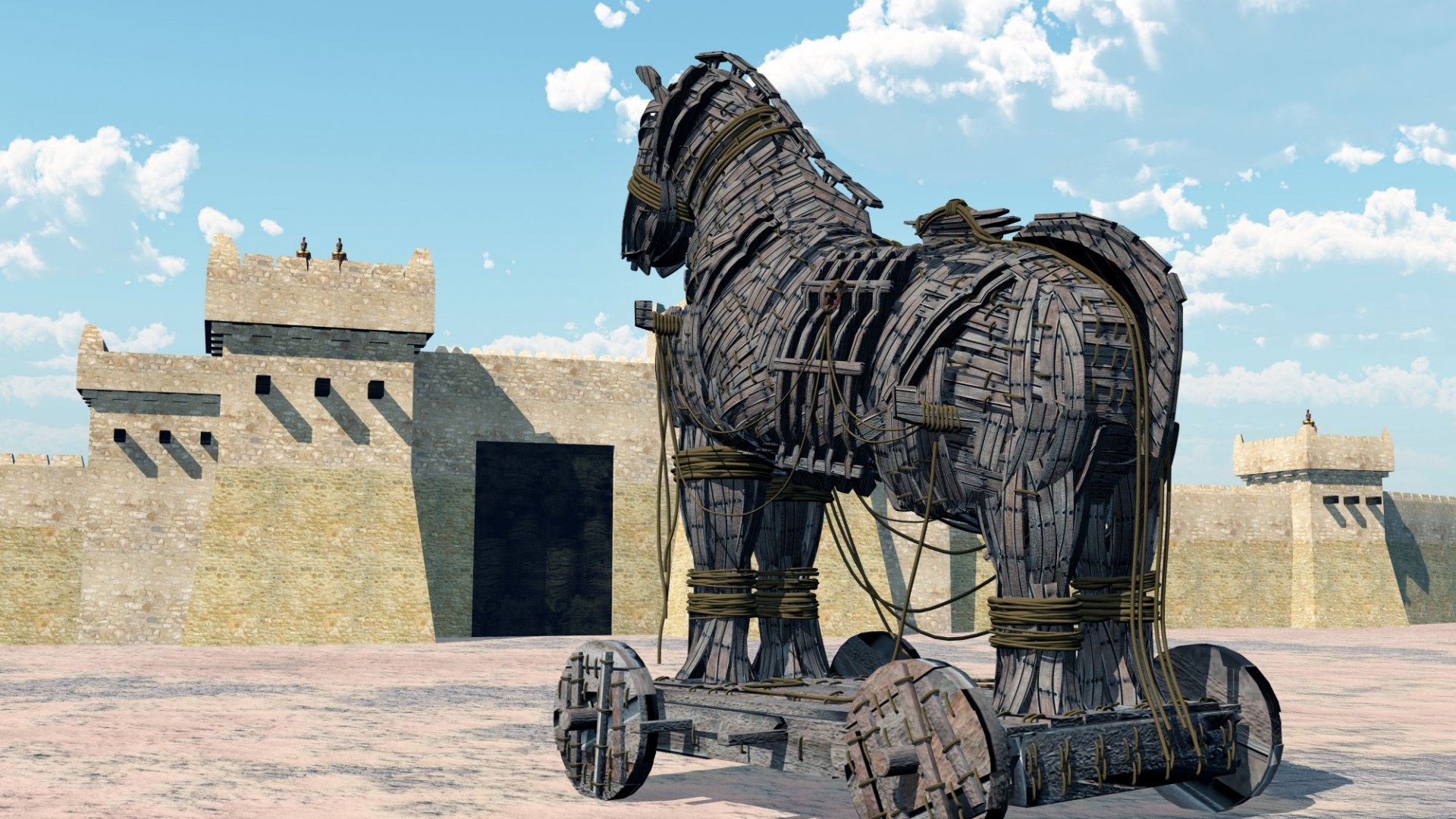For ten long years the Greeks had been attempting to seize the City of Troy and win the war. In exasperation, Odysseus comes up with one last desperate measure. He instructs his soldiers to build a magnificent wooden horse and to position it outside the city gates. Under cover of darkness, he and his best men climb inside.
The next morning, while the citizens of Troy are waking up the remainder of the Greek army sets sail.
‘They have surrendered!’ the shout goes up across the walled city.
‘And they’ve left a gift to mark their defeat!’ The Trojans pull the horse inside their city gates and begin their victory celebrations.
In the early hours of the morning, following their night of liquor, rich food and dancing, all the Trojans are deeply asleep and Odysseus and his men crawl out of the wooden horse and capture the city from within.
Trojan horse.
Looks like something kind, generous or at the very least neutral on the outside.
But what it really disguises has the power to wreak havoc.
I’ve been using this metaphor in our courses about relationships, needs, self-expression and honesty. We use it to refer to a self-expression communication that isn’t ‘clean’ in other words, it is not really about what, on the surface, it seems to be about.
For example, I might offer to help at a charity event. The organisers might respond with a quick message saying thanks but they have enough people. My reaction to that reveals what was really going on in that offer.
Was it ‘clean’ i.e. was the offer what it looked to be on the surface – simply an offer to help out if required? If it was then my reaction to their ‘thanks but no thanks’ will reflect that. Fine. No problem at all. I’ll be glad for them that they have everything they need.
But maybe it is not ‘clean’. Maybe the offer to help was really a Trojan horse disguising a belly-full of something else – perhaps a need to feel included or to belong or a need to be recognised, heard and acknowledged. If this is the case then my reaction to the quick text from the organisers might be sadness or resentment or an increase in whatever feeling I was trying to get rid of through the offer. I might withdraw, send a terse message back, decide to never offer my help again.
And now the very thing that I really wanted – e.g. to belong – is being pushed further away by my own behaviour…
This is the way that our words and actions and other people’s responses to them reveal what is really going on for us. Because more often than not all of this is out of the reach of the conscious mind. It is only in our reaction that the internal needs and motivations are made available to be looked at.
It is a powerful revelation. It starts to become clear why so much of our interaction can be confusing and fraught. It becomes clear that what is apparent on the surface is not the whole truth.
What do we do with that need once it has become conscious? We all have them, of course. The Trojan horse exercise makes it clear that these underlying needs actually push away the thing being sought or keep in place the thing being resisted.
With this information, our relationships start to become a bit more straight-forward.
Offers, invitations and suggestions start to be ‘cleaned up’. They start to actually be what they appear on the surface to be.
Underlying needs start to be recognised and acknowledged. Instead of remaining as subconscious dictators ruling the show in disguise, they are brought into the open. They can be talked about. Maybe we explore them in therapy or with someone we trust. We start to recognise them. Ultimately, we see that these needs are there to be understood and honoured.
And now, there are no horses, no gifts that disguise ulterior motives.
There is just honesty and truth.
And that sets everyone free.
Our live on-line THEM course begins July 1st 2022 or if you are reading this after this date you can access it as a private study course on www.claredimond.com.





0 Comments